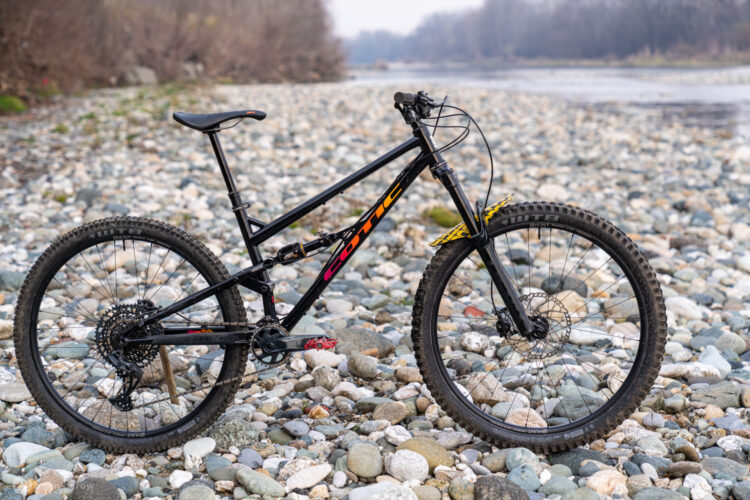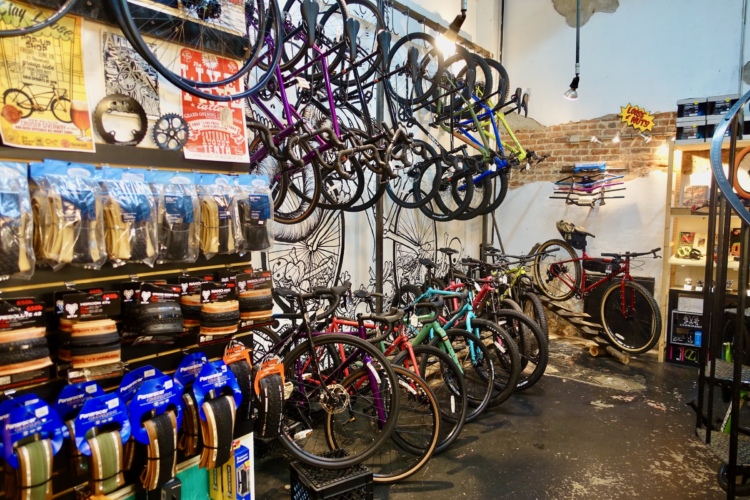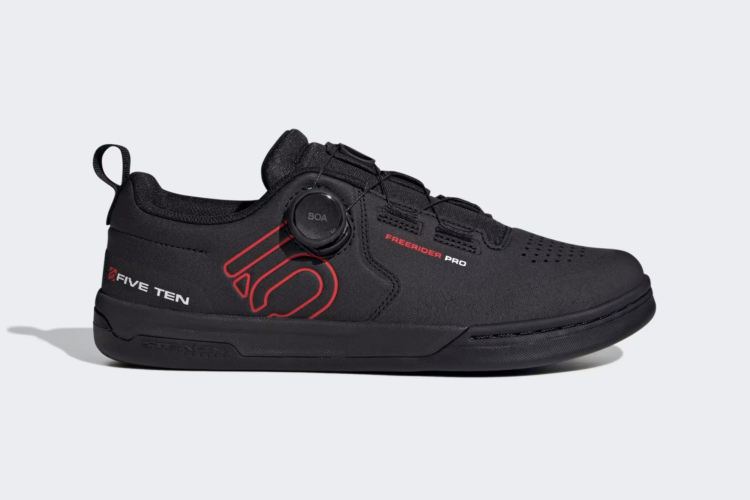
Fezzari has been missing something in its lineup; a full carbon bike between the 120mm Signal Peak marathon XC bike, and the long-travel, 160mm 29er, La Sal Peak. Today, Fezzari fills the gap with the Delano Peak, a 135/150mm 29er trail bike, that is full carbon and full send.
For anyone who needs a workhorse of a trail bike that can pedal efficiently, and descends with a mission, without taking out a second mortgage, the Delano Peak delivers.
Last year, I put a couple hundred miles on the shorter-travel Signal Peak for BC Bike Race. It was the first time I had ridden a Fezzari, and I walked away from that learning a few things about their bikes, that also apply to the new Delano Peak.

The frames are made of a high quality carbon fiber, with a lot of attention paid to details like water bottle fitment, very quiet internal cable routing, great colors and graphics, chainstay noise damping and paint protection, suspension performance, and modern geometry.
The Delano Peak has 135mm of Horst Link controlled travel, performed via TetraLink, their moniker for the four-bar design. TetraLink balances the bike’s playfullness and its composure, and its pedal efficiency along with the ability for “soaking up the big hits.”
More specific to the new trail bike, the Delano Peak has a lower standover height than both the Signal Peak and the La Sal Peak, a 300mm insertion depth for dropper posts, even on a size small, ISCG-05 mounts, a 148mm Boost-spaced rear axle and SRAM universal derailleur hanger, a threaded bottom bracket, and sizes M – XL can fit two bottles inside the frame, while the size S can have one placed on the inside of the down tube or seat tube.

The Delano Peak uses the GA Link, which puts the bike in two different positions depending on the wheel size for either 29 or 27.5+ wheels. In the low position with 29er wheels, my size medium test bike has 434mm chainstays, a 65° head tube angle, a 77.5° seat tube angle, a 1209mm wheelbase, with 455mm of reach and a 741mm standover height.
All of these measurements — the longer reach and wheelbase, lower standover, steeper seat angle, and aggressive head tube angle — signal that Fezzari knows what it takes to put together a modern and aggressive trail bike. But, wait, there’s more. The Delano Peak comes in at some very valuable price points.
I opted to test the Delano Peak Comp, a $3,500 build that starts their offerings. The Comp has a DVO Diamond D1 150mm fork, a DVO Topaz T3 rear shock, a Shimano SLX 12-speed drivetrain with 10-51T cassette, Fezzari’s own 800mm-wide handlebars, with Fezzari FRD 35mm clamp diameter and length stem, Ergon grips and saddle, WTB STP i29 rims with Bear Pawls hubs, Maxxis EXO tires, and Shimano BL-M6100 4-piston brakes.

Fezzari allows for a few upgrades when checking out the Comp: Add Stan’s Flow wheels for $300, Enve AM30 carbon wheels for $1,200, or a 200mm PNW Bachelor post for longer-legged folks for $120.
The Elite build has a Fox 36 and DPX2 Performance Elite fork and shock, with Shimano XT 12-speed drivetrain and brakes, with Stan’s Flow wheels and Neo hubs, and a PNW Rainier dropper post for $4,500. Taller riders can still upgrade to a 200mm PNW dropper post for $120.
The Race build is the same as listed above, but this comes Enve AM30 carbon wheels and Industry Nine 1/1 hubs. This sells for $5,500. Mind you, this is a full carbon frame, with a new Shimano XT groupset, and Enve carbon wheels – for $5,500.
The Pro build adds Factory level Fox suspension, a SRAM XO1 drivetrain, PNW dropper post, Enve AM30 wheels, and SRAM Code RSC brakes for $6,500.

There are still two more options. A Team Edition XTR build with Shimano XTR and Enve M6 wheels with Industry Nine Hydra Hubs, and Fox Factory suspension sells for $8,000, and a Team Edition XO1 AXS build with SRAM AXS electronic drivetrain and the same wheels costs $9,000.
Clearly, there are plenty of options to choose from, and a frameset alone costs $2,300 with a Fox DPX2 shock, or get it with a Fox 36 Factory fork for for $3,200.
Ride impressions

Some will debate whether the $3,500 price point on the Delano Peak Comp qualifies as a “budget bike,” and that’s fine. Calling it a “value bike” might be a better way to categorize it, and either way it’s a hell of a deal. I said a lot of the same things regarding the Rocky Mountain Thunderbolt A50, because when I tested it, the T-bolt had a very similar component package, aside from the DVO suspension on the Fezzari. The Thunderbolt had a Shimano SLX groupset, with Fox suspension, aluminum wheels, and an entry-level Race Face dropper post, all for $3,400.
Being a direct-to-consumer company, Fezzari has found a little bit more wiggle room, and at $3,500 the Delano Peak has a full carbon frame, and all the components and geometry to make the trail bike hit way above its price point. Surely, this thing is heavy though, right? Value bikes can’t have performance, looks, and modern geometry without weighing way more than the options out there. False. My medium test bike without pedals hit 31lbs on the scale at home – very impressive for the most affordable build option.
I have been out on the Delano Peak for a handful of rides and so far, it checks every box that I’d look for in a modern trail bike. The geometry feels spot on, the components are all working marvelously, and most importantly, this trail bike has been fun to ride.
The Tetra-Link suspension is efficient and responds well to the trail and the bike carries its speed with ease into descents, without shying away from anything steep or technical.
Editor’s Note: Check out the final review of the Fezzari Delano Peak





















0 Comments